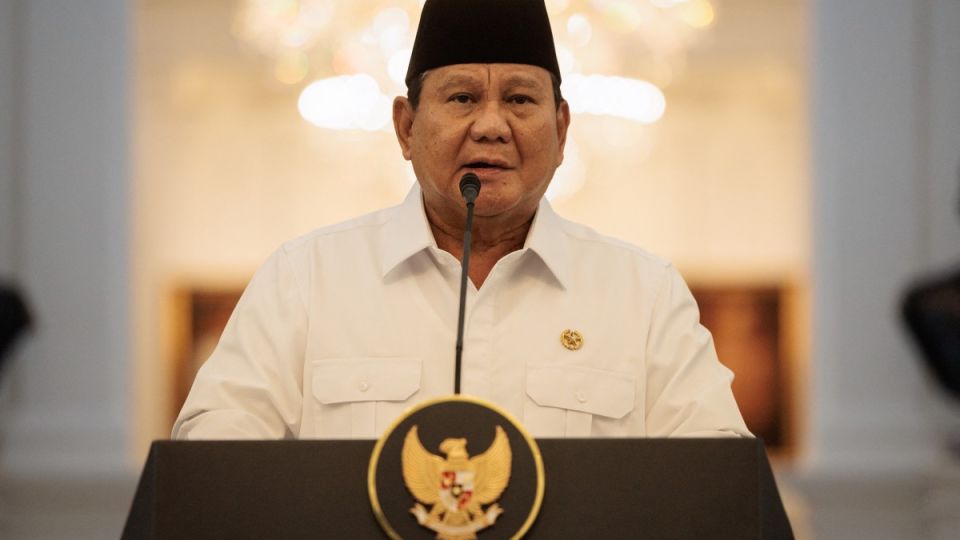October 1, 2025
JAKARTA – The Presidential Palace has faced mounting criticism from journalist groups and rights organizations after briefly revoking a reporter’s credentials over questions about the government’s free nutritious meal program, linked to thousands of food poisoning cases nationwide, raising concerns about press freedom in Indonesia.
Diana Valencia, a CNN Indonesia journalist, had her Palace press pool access revoked on Saturday by the Palace’s Press Bureau (BPMI) following a doorstop interview with President Prabowo Subianto at Halim Perdanakusuma International Airport in East Jakarta.
The President had just returned from a week-long international trip, including his debut at the United Nations General Assembly in New York, where he pushed for a two-state solution between Palestine and Israel and declared readiness to establish official diplomatic ties with Israel should Palestine gain independence.
During Saturday’s interview, Diana asked whether Prabowo had plans to address the poisoning cases linked to his flagship free meals program, to which he replied that he had just returned from a seven-day working trip and would promptly summon the National Nutrition Agency (BGN) to discuss the matter.
“This is quite a big program, so there must be shortcomings at the start, but I am sure this [problem] will be handled carefully. Stay alert, don’t let this issue be politicized,” he said. The program, introduced earlier this year to address the country’s perceived high rate of stunting, has sparked public outcry after more than 8,000 children were reported poisoned and required treatment in hospitals.
Later that day, Diana announced via a messaging app that her access to the Palace had been revoked because she was “thought to have asked questions outside the context of the event.”
BPMI head Erlin Suastini confirmed to journalists that the bureau’s intention was only “to smooth things out” by limiting questions to the President’s work trips.
“We don’t prohibit you from asking questions, but you should ask questions within the context of the event and consider the position of the person being asked regarding the current conditions,” Erlin wrote in the messaging group for Palace journalists.
The move drew swift condemnation from journalist groups, rights advocates and social media users as an attempt to muzzle the press. In response to the backlash, BPMI reinstated the reporter’s credentials on Monday after a two-hour meeting at the Presidential Palace attended by, among others, CNN Indonesia chief editor Titin Rosmasari, Press Council deputy chair Totok Suryanto and BPMI head Erlin.
Yusuf Permana, deputy for protocol, press and media at the Presidential Secretariat, said the bureau “regrets having withdrawn the credentials” and assured that such incidents would not recur. He further emphasized that the Palace upholds press freedom as mandated under Law No. 40/1999.
Diana of CNN Indonesia expressed hope after the meeting that her case “will be the last.”
Rights group Amnesty International Indonesia, however, stressed that restoring the credentials does not erase the incident.
“Although the Palace has returned the press ID to the journalist involved, this act of repression cannot simply be ignored,” Amnesty International Indonesia’s media manager Haeril Halim said, highlighting that such repression creates a climate of fear among reporters and risks reinforcing authoritarian practices.
The President must take responsibility for the revocation and publicly apologize, while ensuring that such repressive measures do not happen again, he added.
“The government is obliged to respect the work of journalists as part of press freedom protected by law. Controlling, restricting or forbidding critical questions is a step backward for Indonesia.”
Totok from the Press Council welcomed the assurances from the BPMI that press freedom for journalists covering the Palace will be guaranteed in accordance with the Press Law.
“The Press Council will continue to monitor to ensure this commitment is fully implemented,” he said, adding that it is crucial for journalists to remain professional and critical to serve the country.
“If the press is not critical, [the government’s] programs may fail or run off course,” he stressed.


